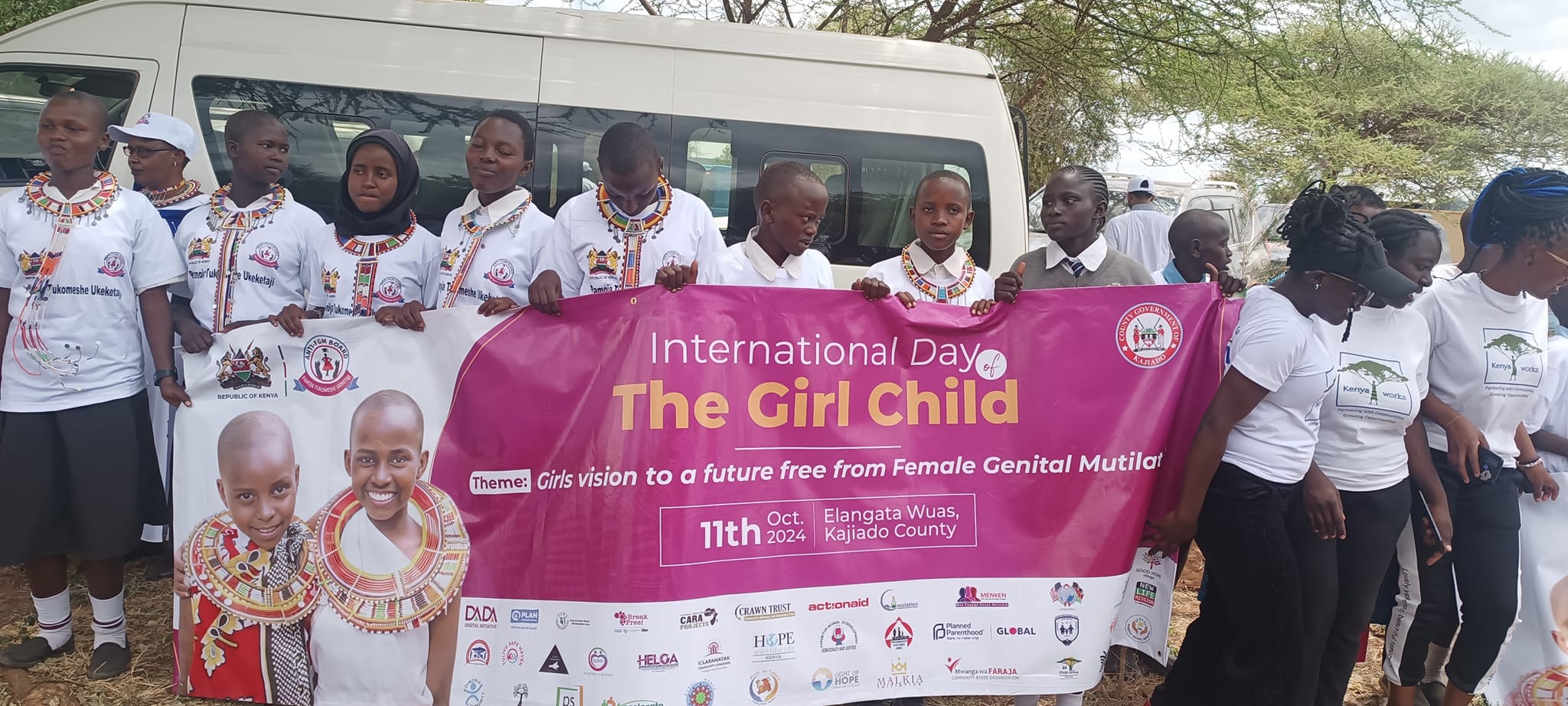The cases of Female Genital Mutilation (FGM) in Kenya are gradually declining. The Kenya Demographic and Health Survey (KDHS) 2022 shows that the prevalence of FGM fell from 21 percent in 2014 to 15 percent in 2022.
Ann Wang’ombe, the Principal Secretary for Gender and Affirmative Action, noted that combating this practice has been challenging, as FGM is deeply entrenched in cultural traditions and often carried out in secrecy.
However, she expressed optimism that the outlawed practice will be completely eradicated within the next two years, thanks to vigorous campaigns and awareness efforts against it.
“FGM cases have been declining over the years, and we are confident that in the next two years it will have been eliminated,” she said.
During celebrations for the International Day of the Girl Child in Elangata Wuas, Kajiado County, Wang’ombe described FGM as an outdated cultural practice that offers no significant benefits to girls but instead hinders their future opportunities.
She urged communities that practice FGM to adopt Alternative Rites of Passage, which would allow girls to continue their education and pursue their dreams.
The Principal Secretary emphasised the importance of collaboration among all stakeholders to eradicate FGM, especially as schools close for the long holidays, a time when the practice is particularly prevalent.
Wang’ombe also acknowledged the considerable progress made in addressing issues affecting girls, noting that they are now more empowered through various government initiatives.
“When you empower a girl, you empower a society and a nation. Our girls have become more empowered through several programmes targeting them, such as free primary education, the Youth Fund, and the Women Enterprise Fund,” she said.
She revealed that, alongside FGM, girls also face issues such as gender-based violence and early marriages.
In her remarks, Parliamentary Affairs PS Aurelia Rono reiterated the urgent need to eradicate FGM, describing it as an outdated practice that violates the rights and health of girls.
She highlighted the significant progress made in the legislative framework to protect girls.
“The Prohibition Against FGM and the Anti-FGM Act of 2011 criminalized the practice and established severe penalties for those involved, marking a crucial step forward. Since then, we have seen a decline in FGM cases, partly due to the establishment of the Anti-FGM Board and ongoing educational programmes,” Rono stated.
Bernadette Loloju, Chief Executive Officer of the Anti-FGM Board, confirmed that while new FGM cases are declining nationwide, the prevalence remains high in five counties: Wajir, Mandera, Marsabit, Samburu, and Kisii.
According to the KDHS 2022 report, the prevalence of FGM in Kenya varies by county, with Wajir County leading at 97.2 percent, followed by Mandera at 95.9 percent, Marsabit at 83 percent, Samburu at 75.6 percent, Kisii at 77.3 percent, and others, while Busia has the lowest rate at 0.1 percent.
The International Day of the Girl Child is a global event aimed at raising awareness of the unique challenges faced by girls worldwide and promoting their empowerment.
Established by the United Nations in 2012, this day highlights the need to address issues such as gender inequality, child marriage, and limited access to education and healthcare.
The observance celebrates the potential of girls and advocates for their rights, emphasising the importance of ensuring their full participation in social, economic, and political spheres.
This year’s theme, “Girls’ Vision for the Future,” aims to amplify the voices of girls, empowering them to say no to FGM and early marriages, and to work collectively to advance their agenda and realize their vision.





